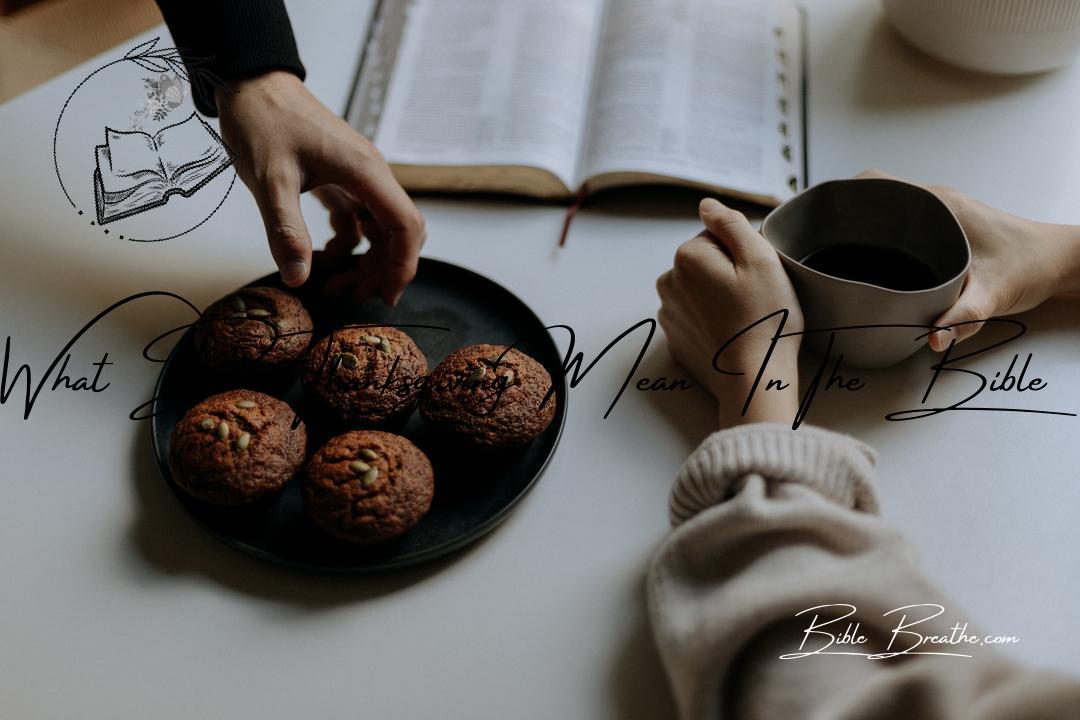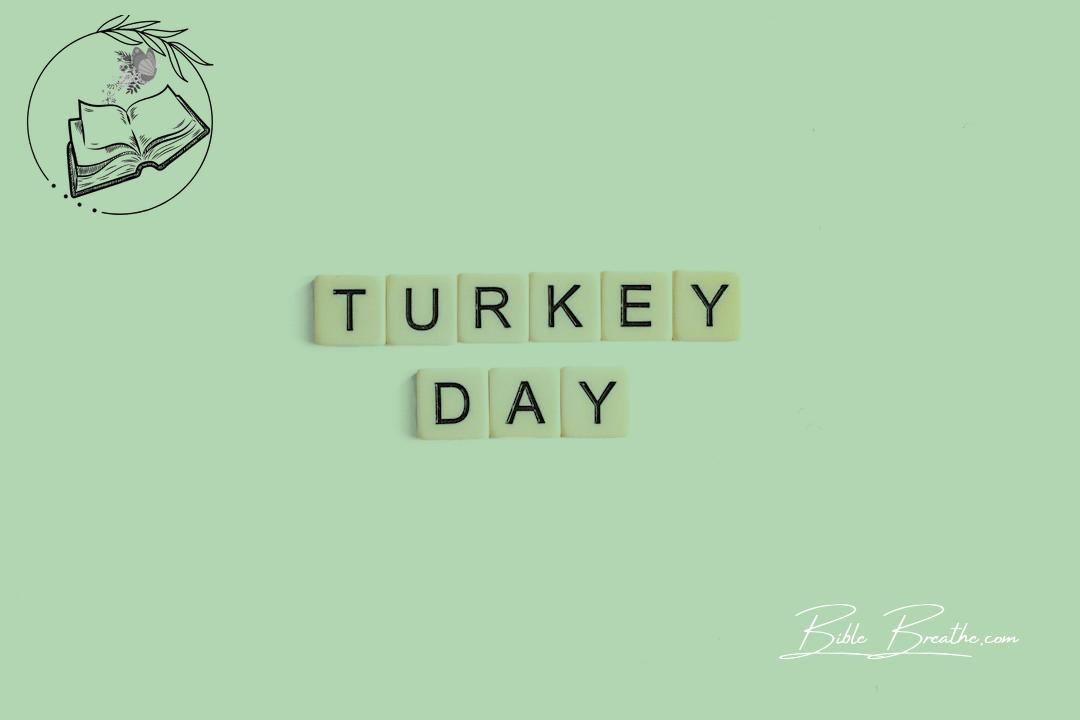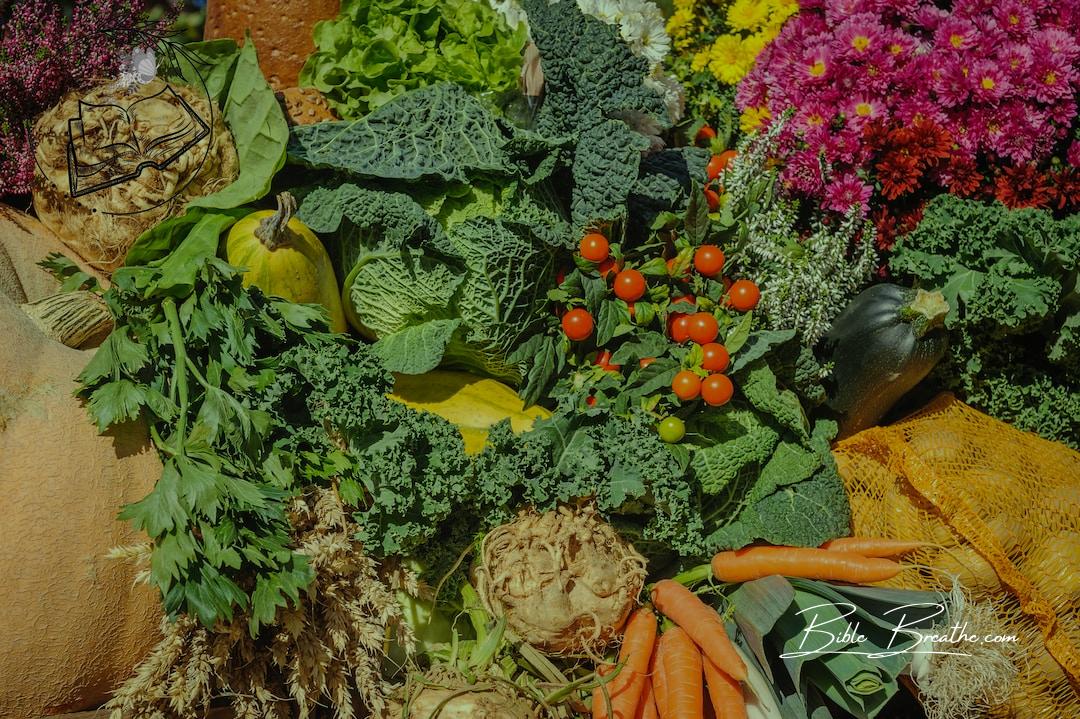Thanksgiving in the Bible?
It’s not just about a feast with turkey and all the trimmings, fam.
It’s a heart thing, a real deep vibe with God.
See, from way back in the Old Testament to the teachings of Jesus in the New Testament, we’ve been on a journey with Thanksgiving.
In the old days, it was about offering up our thanks, making a sweet sound, and recognizing God’s blessings – kind of like your best jam session.
But fast-forward, and now it’s about Jesus, His grace, and the Gospel message.
It’s like upgrading from your first bike to a turbocharged car!
It’s not just a ritual; it’s a matter of the heart.
Thanksgiving is our way to say, “God, You’re amazing!”
So, we’re gonna dive into the Bible, from the heavenly throne room to the early church, and get the real deal on what Thanksgiving means.
Let’s roll on this gratitude journey, fam!
🙏🔥
Key Takeaways
- Gratitude holds a central role in a believer’s life according to the Bible. It is not merely an emotion but a conscious choice to appreciate and acknowledge God’s goodness, mercy, and blessings.
- The theme of thanksgiving weaves continuously throughout the Bible, emphasizing the importance of expressing thanks to God for His provision, guidance, and love. From the Old Testament to the New, this act of gratitude is encouraged and celebrated.
- Believers are called to express gratitude in all circumstances, reflecting an attitude of trust and faith in God’s sovereignty. Whether in times of abundance or scarcity, joy or sorrow, the Bible encourages a heart of thanksgiving, recognizing God’s faithfulness in every situation.
- Thanksgiving in the Bible transcends mere words or rituals; it is an outpouring of the heart, demonstrating a deep sense of appreciation for God’s grace and provision in the believer’s life.
- By embracing the spirit of thanksgiving, individuals can cultivate a positive outlook, strengthen their relationship with God, and live a life marked by gratitude, which is pleasing to God and enriching to the human spirit.
Unpacking the True Meaning of Thanksgiving in the Bible
Photo modified by BibleBreathe.com. Original photo by Robert Thiemann on Unsplash
Thanksgiving in the Bible, my friends, is not just about passing the mashed potatoes around the dinner table or a brief nod of gratitude.
No, it’s so much deeper than that.
It’s like having a heart-to-heart conversation with the Master of the universe, saying, “Thank you for everything, Lord.”
Thanksgiving: More Than Just Words
You see, in the biblical context, Thanksgiving isn’t merely uttering polite phrases.
It’s like giving God a fragrant bouquet of gratitude, a sweet-smelling offering straight from our hearts.
The psalmist got it right when he said:
“Offer unto God thanksgiving; and pay thy vows unto the most High.” – Psalm 50:14 (KJV)
It’s like when you acknowledge the thoughtful gifts from a loved one, except in this case, the gift-giver is our Heavenly Father.
Gratitude and Acknowledging God’s Wonders
Thanksgiving goes hand in hand with recognizing God’s incredible works in our lives.
It’s like flipping through an album of memories and tracing the golden threads of His grace and providence.
When we say thanks, it’s like saying, “God, you’ve been there through thick and thin.
You’ve been our rescue, our provider, and our guide.”
“In every thing give thanks: for this is the will of God in Christ Jesus concerning you.” – 1 Thessalonians 5:18 (KJV)
It’s akin to acknowledging the artist behind a masterpiece—a nod to God’s intricate brushstrokes in the canvas of our existence.
A Profound Expression of Dependence
Thanksgiving in the Bible is more than just a checklist of blessings received; it’s an expression of our complete dependence on God.
It’s like a child holding onto the hand of a loving parent, knowing they are safe and cherished.
We thank God not only for what He provides but for who He is to us—our Savior, our Provider, our Comforter.
“O give thanks unto the LORD, for he is good: for his mercy endureth forever.” – Psalm 107:1 (KJV)
It’s a heartfelt recognition of our reliance on God’s character and a declaration of our faith in His redemptive work.
So, my friends, as we dive into the profound depths of Thanksgiving, remember that it’s not just a one-time event; it’s a way of life—a daily offering of gratitude to the Divine Host who sustains us in every season.
Grasping the Heartfelt Meaning of Thanksgiving in the Bible
Photo modified by BibleBreathe.com. Original photo by Evie S. on Unsplash
You know, when we talk about thanksgiving in the Bible, it’s like peeling back layers to reveal the very heart of the matter.
It’s more than just a polite ‘thank you’ you say after a favor; it’s a deep, soulful connection with the Divine.
It’s All About the Heart
In the Bible, thanksgiving isn’t just an action; it’s a state of the heart.
It’s like a child who eagerly hugs a parent after receiving a long-awaited gift.
The heart, overflowing with joy and appreciation, naturally pours out gratitude.
Similarly, in the spiritual realm, true thanksgiving flows from recognizing the incredible gifts and blessings that God has generously bestowed upon us.
“In every thing give thanks: for this is the will of God in Christ Jesus concerning you.” – 1 Thessalonians 5:18 (KJV)
Getting Closer to God Through Gratitude
Real thanksgiving is like a magnet that draws us closer to God, aligning our hearts with His divine purpose.
When we offer thanks, it’s not just polite words; it’s an acknowledgment of God’s grace, His redemptive work, and the countless blessings He showers upon us each day.
It’s an act of worship, a heartfelt outpouring of love for our Creator.
“Enter into his gates with thanksgiving, and into his courts with praise: be thankful unto him, and bless his name.” – Psalm 100:4 (KJV)
In the biblical context, thanksgiving is intricately woven into the tapestry of worship and praise.
It’s like the sacrificial system of old, akin to the offerings made by the Israelites.
Just as they offered thanks to God, we express our gratitude for the ultimate sacrifice of Christ, His boundless grace, and the promise of salvation.
So, as we dive deeper into the meaning of thanksgiving in the Bible, let’s not limit it to a mere holiday or a polite phrase.
It’s a profound act of acknowledging God’s character, His provision, and His boundless love.
It’s an invitation to draw nearer to the Divine, approaching His heavenly throne room with hearts overflowing with gratitude.
Tracing the Journey of Thanksgiving in the Old Testament
Photo modified by BibleBreathe.com. Original photo by Luke Southern on Unsplash
In the intricate tapestry of the Old Testament, Thanksgiving isn’t just a fleeting emotion; it’s a fundamental thread deeply woven into the fabric of faith, sacrifice, and blessings.
Think of it as the first rays of dawn slowly lighting up the landscape of faith.
A Grateful Heart and the Connection to Blessings
Thanksgiving in the Old Testament springs forth from a heart filled with gratitude.
It’s like a flower instinctively turning toward the sun—a soul reaching out in thankful recognition.
Often, this gratitude is intertwined with blessings.
“Bless the LORD, O my soul, and forget not all his benefits.” – Psalm 103:2 (KJV)
Thanksgiving here is a symbiotic dance with blessings—it’s both the dance and the music, an inseparable connection.
The Emergence of the Thanks Offering
In the Old Testament, Thanksgiving took tangible form through the thanks offering within the sacrificial system.
It’s similar to returning a portion of the harvest to the landowner, acknowledging that all abundance flows from God.
“Offer unto God thanksgiving; and pay thy vows unto the most High.” – Psalm 50:14 (KJV)
The act of offering thanks was more than a mere ritual; it was a disposition of the heart.
It’s like saying, “God, I recognize You as the source of all goodness, and I offer back a part of Your blessings as an expression of gratitude.”
The Evolution of Thanksgiving
This journey through the Old Testament isn’t just a historical account; it’s a spiritual narrative.
Thanksgiving evolves from being a simple act of gratitude to becoming an integral part of worship—a beautiful note in the symphony of faith.
“O give thanks unto the LORD, for he is good: for his mercy endureth forever.” – Psalm 107:1 (KJV)
Just as a tiny seed grows into a mighty tree, Thanksgiving in the Old Testament transforms, evolving from a simple “thank you” into a profound expression of faith and reliance on God.
As we delve into the pages of the Old Testament, we witness this transformation—a journey of the human heart, embracing gratitude, and acknowledging God’s benevolence through the practice of Thanksgiving.
Unwrapping Thanksgiving in Jewish Tradition
Photo modified by BibleBreathe.com. Original photo by Sincerely Media on Unsplash
You know, in the rich tapestry of Jewish tradition, thanksgiving isn’t just some custom you go through; it’s a deep-rooted practice woven into the very soul of their spirituality.
Getting a Glimpse into the Heart of Thanksgiving in Jewish Tradition
Thanksgiving, or as they call it, Todah in Hebrew, is a big deal in Jewish life.
It’s not just a casual nod to blessings; it’s an active way of saying “thank you” to God for His provision.
Think of it like a beautiful dance of the soul, where every step is a heartfelt expression of gratitude to the Creator.
“I will praise the name of God with a song, and will magnify him with thanksgiving.” – Psalm 69:30 (KJV)
The Prayer for Food That Speaks Volumes
One of the core Jewish prayers linked to thanksgiving is recited before and after meals.
It’s a poetic reminder that every bite we take is a gift from God, a divine nourishment that keeps us going.
This prayer, often called the Birkat Hamazon, is all about gratitude for food, acknowledging that our sustenance comes from the Divine hand.
In a way, this practice echoes the Old Testament’s sacrificial system, where offerings were made to recognize God’s provision and grace.
Just as in those ancient times, Jewish prayers of thanksgiving symbolize our dependence on God’s continuous goodness.
“The eyes of all wait upon thee; and thou givest them their meat in due season.” – Psalm 145:15 (KJV)
Blessings: Whispered ‘Thank Yous’ to the Divine
Now, blessings in the Jewish context are like those quiet, heartfelt ‘thank you’ notes to God for His boundless mercy.
Each blessing, or berachah, is a way of acknowledging God’s sovereignty over different aspects of life.
From the moment you wake up to when you lay your head down to rest, blessings serve as reminders of God’s presence and grace.
Imagine it as a series of ‘thank you’ notes to the Divine, recognizing His hand in every detail of life — a continuous offering of thanks, woven into the very fabric of Jewish practice.
So, when we explore what thanksgiving means in the Bible, especially through the lens of Jewish tradition, it’s like a beautiful symphony of gratitude, a heartfelt song of praise, and an unending dance of thankfulness to the One who provides and sustains us.
Thanksgiving: A Fresh Perspective from the New Testament
Photo modified by BibleBreathe.com. Original photo by Alexander Schimmeck on Unsplash
In the vibrant landscape of the New Testament, Thanksgiving takes on a new shade and depth, like the first light of dawn after a long night.
It’s a theme intricately woven into the fabric of grace, redemption, and the devotional practices of the early church.
Thanksgiving: A Grateful Response to Grace
In the New Testament, Thanksgiving is intimately intertwined with the concept of grace.
It’s like a flower blossoming in response to the warmth of the sun.
Grace, God’s undeserved favor, forms the foundation upon which Thanksgiving is built.
And let the peace of God rule in your hearts, to the which also ye are called in one body; and be ye thankful.” – Colossians 3:15 (KJV)
Thanksgiving becomes a natural response to the incredible grace showered upon us—a heartfelt recognition of God’s goodness.
A Symphony of Gratitude for Redemption
At the heart of Thanksgiving in the New Testament lies the redemptive work of Jesus on the cross.
It’s like the crescendo in a beautiful symphony, the pinnacle of a grand narrative.
Our gratitude echoes the sacrificial love of Christ and the salvation it brings.
“Thanks be unto God for his unspeakable gift.” – 2 Corinthians 9:15 (KJV)
Thanksgiving here is a symphony of gratitude, celebrating the ultimate act of love and deliverance.
The Early Church: Practicing Thanksgiving
The early church didn’t treat Thanksgiving as a mere ritual; it was an outpouring of their transformed hearts.
Think of it as the harmonious collaboration of an orchestra, each member playing their unique part.
Their gatherings were a tapestry of worship, praise, and gratitude.
“In every thing give thanks: for this is the will of God in Christ Jesus concerning you.” – 1 Thessalonians 5:18 (KJV)
Thanksgiving became a shared melody in the life of the early church, harmonizing their hearts and creating a beautiful expression of faith.
As we journey through the New Testament, we discover Thanksgiving infused with a profound sense of grace, a response to Jesus’ redemptive work, and a communal practice within the early church.
It’s a melody that continues to resonate through the ages, inviting us to join in and offer our grateful hearts in response to God’s amazing love.
Embracing the Transformative Power of Thanksgiving
Photo modified by BibleBreathe.com. Original photo by dylan nolte on Unsplash
You see, in the tapestry of faith, thanksgiving isn’t just some loose thread; it’s a vibrant one, weaving its way through the very essence of a believer’s life, leaving an unmistakable mark on their spiritual journey.
The Weight of “Thanklessness”
Picture a heart without gratitude; it’s like a garden without sunlight and water.
When we neglect thanksgiving, we unknowingly drift away from the source of all blessings.
It’s almost as if we’re turning our backs on a generous giver, shutting the door to His precious gifts.
“Because that, when they knew God, they glorified him not as God, neither were thankful…” – Romans 1:21 (KJV)
The Profound Impact of Gratitude in a Believer’s Life
On the flip side, a heart filled with gratitude is like a well-tended garden, bursting with life and beauty.
Gratitude isn’t just a mere gesture; it’s an attitude that reshapes our perspective.
It’s like putting on a pair of glasses that allow us to see the world through the lens of God’s goodness.
Gratitude is a language that speaks to the very depths of our soul.
It’s an offering of thanks, a heartfelt praise, and a humble posture.
It’s a way of acknowledging God’s grace, His redemptive work, and the incredible gift of salvation.
“In every thing give thanks: for this is the will of God in Christ Jesus concerning you.” – 1 Thessalonians 5:18 (KJV)
Throughout the grand narrative of the Bible, we encounter numerous stories of individuals who, despite their circumstances, chose gratitude.
They understood that gratitude isn’t just a word; it’s a force that unlocks doors, paves the path for miracles, and draws us nearer to God.
So, when we reflect on what thanksgiving means in the Bible, it’s not just a superficial word or action; it’s a transformative power that revitalizes our spirits, aligns us with God’s divine plan, and welcomes us into the sacred sanctuary of His presence.
Frequently Asked Questions (FAQs) About What Does Thanksgiving Mean In The Bible
Why is Thanksgiving important in the Bible?
Thanksgiving is significant in the Bible as an expression of gratitude to God for His blessings.
It’s a way to acknowledge God’s providence and goodness.
Verses like 1 Thessalonians 5:18 urge believers to give thanks in all circumstances.
How is Thanksgiving practiced in the Old and New Testaments?
Thanksgiving is practiced in both the Old and New Testaments as an expression of gratitude to God.
In the Old Testament, it’s often associated with offerings and sacrifices.
In the New Testament, thanksgiving is encouraged through prayer and thankfulness for God’s grace and blessings, as seen in the teachings of Jesus and the apostles.
What is the connection between Thanksgiving and grace?
Thanksgiving, in the biblical context, is an expression of gratitude for God’s grace.
It reflects acknowledgment and appreciation for the unmerited favor and blessings God provides.
Gratitude aligns with recognizing God’s grace, acknowledging His goodness, and fostering a thankful heart, emphasizing the divine grace bestowed upon us.







